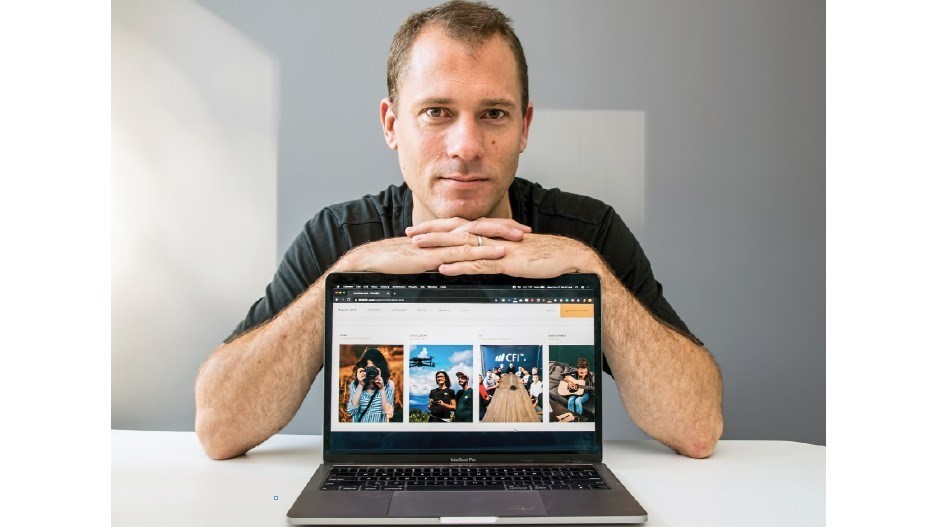Greg Smith’s first experience with an initial public offering came 15 years ago when he was a summer student at a law firm, drafting documents and performing due diligence.
Flash forward to 2021 and the CEO of Thinkific Labs Inc. (TSX:THNC) is now overseeing an IPO of his own.
“I remember being super excited to be just a small part of it then,” said Smith, whose Vancouver-based tech company debuted Tuesday morning on the TSX.
“We've got a whole finance team, and legal [team] and everybody else who did such an amazing job getting us to this point that even now I'm just a little cog in the whole wheel of making it happen.”
Investor interest was solid upon Tuesday’s debut after Thinkific priced 12.3 million of its shares at $13 each in a bid to raise $160 million.
Upon opening bell, shares were trading as high as $15 before falling back down to $14.31 by 9:30 a.m. PT.
The IPO was underwritten by a syndicate led by BMO Capital Markets and CIBC Capital Markets. TD Securities Inc. and Canaccord Genuity Corp. were among the other underwriters.
Thinkific, best known for its platform that helps businesses and individuals create and distribute online courses, raised $22 million in venture capital last September in a funding round led by early investor Rhino Ventures — also based in Vancouver.
“We're just getting started and we've barely scratched the surface of what's capable in online courses and memberships and entrepreneurial ventures in online education,” Smith told BIV.
“Raising money and being a public company gives us a bigger platform to do that.”
Thinkific has free offerings, but revenue is generated by delivering additional features to course creators who typically pay between $49 and $99 a month and then charge their clients fees for the courses (Thinkific does not take a cut of those fees).
The uptake of activity was swift at the outset of the pandemic last year as lockdowns forced consumers to turn to online courses for learning or just to alleviate boredom. People can find anything from hula-hoop lessons to Lego-building courses on the platform.
Medical organization were turning to the company to help more than one million health-care professionals over three months to better understand COVID-19. And the guitar tutors or martial arts instructors who’d typically meet in person with students were suddenly migrating to online courses as well.
But as the world prepares to — hopefully — return to some semblance of a normal life in the coming months as vaccinations roll out, Smith is confident the company has gained enough traction with users that activity won’t crater.
In Australia and New Zealand, where COVID-19 has been significantly contained and restrictions are fewer, Thinkific is still experiencing growth, according to Smith.
“Certainly, the pandemic has been an accelerant and I don't expect that accelerant to continue at exactly the same rate, but we don't see a retraction,” he said.
“It's more [about] continuing to grow and scale but without the extra fuel of the pandemic.”
Thinkific’s preliminary prospectus revealed revenue has been moving at a clip the past three years, growing from US$6 million in 2018 to US$9.8 million in 2019 to US$21 million in 2020.
User growth has increased 126% to reach 25,000 paying customers over the past year.
Average revenue per user amounted to US$105 and a total of 66 million online courses were taken by 21 million people last year.
Meanwhile, Smith said sales and marketing will be top priority following the fresh capital the IPO ushered in.
“One thing we hear all too often when people join us is, ‘This is amazing, I can't believe you do this — I've been looking for a solution like this for a year.’ And so we want to be able to get to them on their first foray into looking for a solution,” he said.
“They not may not even know what they're looking for and so with the proper investment in sales and marketing, and building our brand, we can get in front of them sooner and help them faster.”
The company started last year with about 100 workers and now boasts a headcount of 300 workers. The company’s hiring plans call for having a total headcount of 500 by the end of 2021.
Smith expects most of the hiring will take place around Vancouver but the company is location-agnostic, and will be facilitating remote and hybrid working in a bid to bring in more talent.
“Being a public company gives us a greater platform to attract, retain and compensate exceptional people,” he said.




